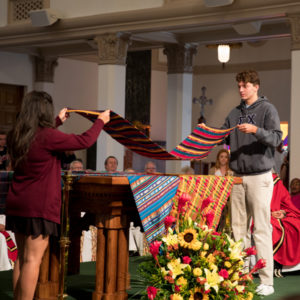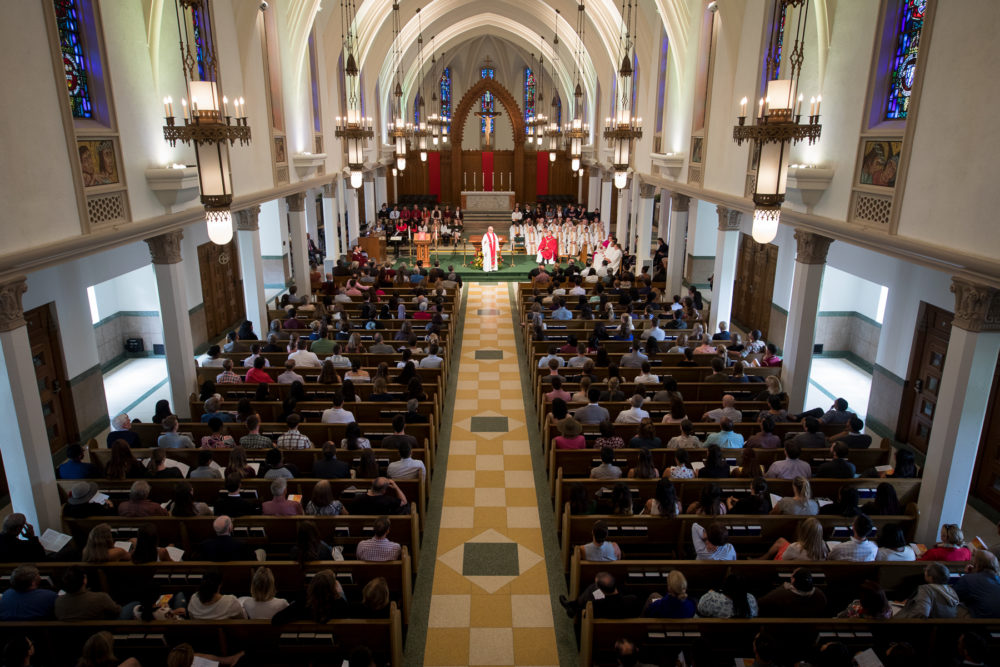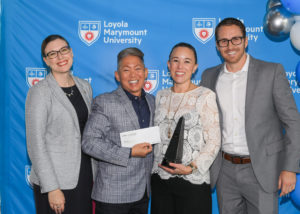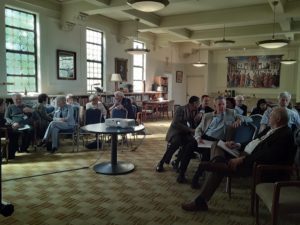MISSION AND MINISTRY | The LMU community gathered Sept. 14 in Sacred Heart Chapel to mark the start of a new academic year with the Mass of the Holy Spirit. This custom, which dates back to St. Ignatius’ lifetime, is steeped in tradition and serves as a joyful celebration of what makes today’s LMU distinctive: our diversity. Marc Reeves, S.J., associate director of Campus Ministry and director of the Catholic Studies Program, offers this reflection on one particularly unique LMU custom, that of preparing the altar with strikingly colorful cloths from around the world:

“These cloths are not meant to represent countries or even particular races or ethnicities. Rather, they represent relationships with communities where LMU students have served around the globe. Over the years, we have been able to collect ‘cultural cloths’ that students have brought back from their Alternative Breaks and Ignacio Companions service program trips. The cloths represent LMU’s relationships with these communities abroad and how our community has been changed, nourished and transformed because of those relationships. In addition, I see these cloths also representing all of us – LMU students, faculty, staff, administrators, alumni and friends. These cloths symbolize our rich diversity and also acknowledge our unity in mission.
This beautiful ritual tradition at LMU offers us an opportunity to reflect upon its theological and liturgical significance too. That is, just as the community of the baptized offers the gifts of bread and wine and brings these gifts to the Eucharistic table, we also pray that we, too, may offer ourselves by placing our very lives on the same altar. The ritual placement of the cultural cloths emphasizes this essential part of every Eucharistic celebration. This ritual action reminds us that the Eucharist is best understood as a verb as opposed to a noun. That is, what we celebrate has everything to do with God’s action of self-giving, and God’s self-giving in Christ brings about transformations – the transformation of the bread and wine into the body and blood of Christ and the ongoing transformation of the faithful, the community of the baptized. In the Eucharist, the people of God are transformed by seeking to take on the mind and heart of Christ so that they too may become the body of Christ, God’s love poured out for the world.”




